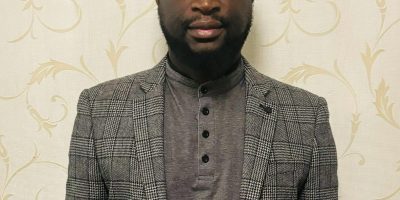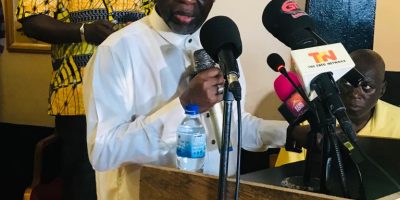The chairperson of the Standing Orders Committee of the National Assembly has argued that the current National Assembly of The Gambia is very different; not controlled from the Presidency, unlike what used to obtain in the Second Republic.
In an interview with the State House Press Corps following a closed door meeting between delegations of British parliamentarians led by the Lord German (OBE), Mr. Jatta, who is the legislator for the Wuli East Constituency, said the Assembly now operates and functions effectively in the interest of The Gambian people.
“…the current dispensation has done away with that [control by President]. The National Assembly has become a People’s National Assembly and the representatives carry out their responsibilities as people’s representatives and not as the resident’s representatives. So that’s a big difference,” he explained.
Hon. Jatta is the longest serving member of the National Assembly. Hence he is now recognised as “The father of the National Assembly”. On Thursday, April 11, 2019, he accompanied the five-member U.K. delegation to the State House to meet with President Adama Barrow.
The Commonwealth Parliamentary Association signed a two-year Memorandum of Understanding between The Gambia National Assembly and the U.K. Assembly and that of the British Isles to support institutional strengthening of The Gambia’s Assembly. The delegation has been engaged with the Gambian members to review the Assembly’s Standing Orders, which guide the operations of the House.
In June 2019, the National Assembly will adopt the new rules that the members believe will put things into motion for the country.
Hon. Jatta explained that when the rules do not stand the test of time, there is a need to either change them totally or amend them. That was the review process that members from the Gambia, with support from their U.K. partners, were engaged in. Now, the Assembly will adopt these revised rules by its next session in June.
President Barrow welcomed this development and reaffirmed his government’s commitment to institutional reforms and strengthening, including the principles of democracy, separation of powers and rule of law.
He also admits that the Assembly cannot move forward without the required instruments, especially for its efficient and effective operations.
The President said in order to build strong country, it will require strong institutions. The National Assembly is one of those institutions that require every bit of strengthening for a vibrant democracy.
Lord German (OBE) explained that with such reforms, the National Assembly will have the powers to make changes to the way laws are created. He said the power of the National Assembly is its laws.
“These laws stand the test of time, and it will also change the way the Assembly operates between government and the Assembly itself,” he added.
Lord German said the Assembly represents the people as that is what they voted for. The members are therefore expected to take on issues which worry the people, which is something that the people expect of it.
What it was some few years ago, especially under the second Republic, was that it operated under the control of the Presidency, Hon. Jatta added. “We are now operating in the interest of The Gambia, and very soon everybody is going to realise that we are in a New Gambia,” Jatta maintains.



Ma sha Allah great and thanks for sharing